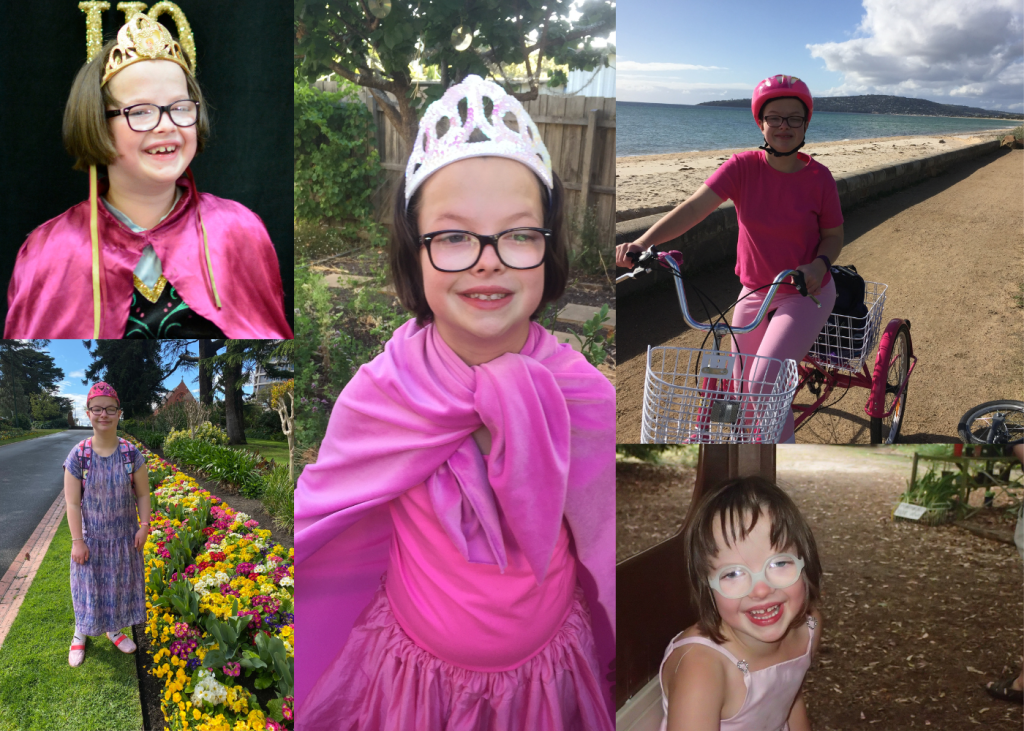By HEATHER RENTON
My pregnancy was fairly uneventful. I think in my gut, I knew something about my daughter was different when I was carrying her. Was it instinct or was it because I had previously miscarried? I just know in my one-hour labour, I wanted her out quickly so I could make sure the niggling feeling at the back of my mind was wrong.
It was at a six-month maternal health check, I was told that she had hypotonia meaning she had low muscle tone and was a very “floppy” baby. We were given the option to see a physiotherapist. I thought why not, let’s help her low tone and I did not think more of the matter. At a nine month paediatrician appointment I felt like had been physically slapped in the face. Welcome to Limbo Land – an unknown destination full of isolation, anxiety and confusion.
Like so many other families, I have never forgotten the words of the paediatrician who shattered my dreams of parenting a “typically developing” child.
“You are going to go very sad, your child has global development delay and is behind in every area of development. Look at the way she is holding a rattle it is immature, and I think she is having multiple seizures. I want to organise an urgent head ultrasound and neurologist referral”
By the time Rebecca was 10 months old she was wearing glasses and was developing at a much slower rate than her peers. At a neurologist appointment, we were told that they didn’t know whether Rebecca would ever walk or talk and that she was missing the “spark” you usually see in a child her age.
At our first genetics appointment, we were told, “Rebecca looks like a child who might be missing a chromosome or has an extra bit, but I don’t know which one”. Our diagnostic odyssey had begun.
After two misdiagnoses and nine years of waiting we were fortunate enough to receive an answer through a whole trio exome sequencing test. Rebecca had FOXP1 Syndrome and her phenotype, symptoms and social behaviours matched those of others with the condition. With Rebecca’s diagnosis came relief and acceptance. I never knew what a weight I was carrying on my shoulders until we finally got the answer that fitted Rebecca.
There were many reasons I wanted a diagnosis, the main one being to learn about any medical implications for Rebecca and our family in the future. I also wanted a diagnosis for practical reasons, such as if there was any targeted therapy and treatments we should be following. And bureaucracy and funding are a whole lot easier to negotiate if you can “tick a box”.
I have connected with other FOXP1 families for information sharing and peer support. We now have information about her condition and have contributed to research projects. With all those things, comes knowledge which leads to empowerment and informed decision making.
I don’t want other parents to travel the frustrating pathway we did to receive a diagnosis. That is one of the reasons I established Syndromes Without A Name (SWAN) Australia almost 10 years ago. I know firsthand how isolating it is when you don’t have a diagnosis and what it is like when your child does not “tick a box”. It can be a low place to be, and I don’t want others to feel unsupported on their journey. I want SWAN parents to be able to connect with one another for support. Although every child is unique, it is our children’s different undiagnosed or rare genetic conditions that connect us.
“I cannot change the past and the struggle we went through to receive a diagnosis for Rebecca. I can, however, learn from our journey and advocate for improvements in the diagnosis process and support system for others.”
*February 28 is Rare Disease Day. Raising awareness and generating change for the 300 million people worldwide living with a rare disease, their families and carers.





Do u know your story is extremely like mine my daughter has just turned 8 and I’m still fighting for an answer